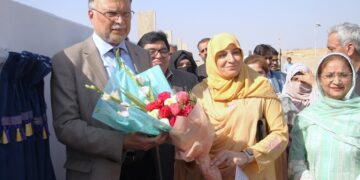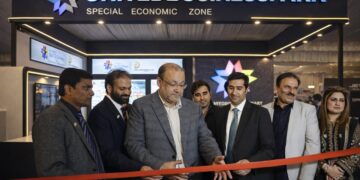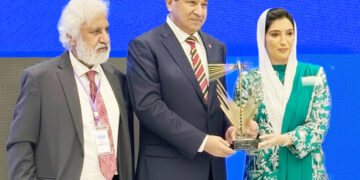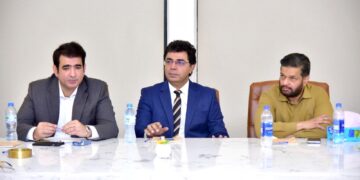KARACHI: President Karachi Chamber of Commerce & Industry (KCCI), Muhammad Jawed Bilwani, has emphasized the pressing need for the State Bank of Pakistan (SBP) to align the nation’s key monetary policy rate with regional benchmarks to support economic growth and ease the burden on businesses.
Bilwani highlighted that instead of advocating for specific interest rate reductions, which have often been overlooked, the Karachi Chamber urges policymakers to adopt a strategic approach by benchmarking Pakistan’s key policy rate against neighboring countries, including China and India. These countries, he noted, maintain substantially lower rates of 3.1 percent and 6.5 percent, respectively, creating a favorable business environment and facilitating access to affordable credit.
He underscored the significant challenges posed by Pakistan’s current monetary policy rate, which stands at 13 percent, still considerably higher than its regional counterparts. He noted that elevated rates deter investment and inflate borrowing costs for businesses, particularly small and medium enterprises (SMEs), which are the backbone of the economy.
“With the key policy rate at 13 percent, borrowing remains expensive, stifling growth, discouraging entrepreneurship, and limiting job creation. By contrast, regional countries with lower rates have provided their industries with a competitive edge in global markets”, he added.
President KCCI emphasized that Pakistan has made significant progress in reducing inflation, which declined to 4.1 percent as of December 2024, marking the lowest level in over six years. He contrasted this with China, which maintains an inflation rate of approximately 0.7 percent, and India, where inflation stands at around 6 percent.
“This stark difference in inflation rates highlights the varied fiscal and monetary strategies employed across the region. While Pakistan’s inflation has substantially improved, it remains critical to leverage this progress by adjusting the monetary policy rate to align with regional benchmarks”, Bilwani explained, adding that Pakistan’s current policy rate of 13 percent still creates challenges for businesses, particularly in terms of financing costs. Reducing the rate in light of low inflation figures would not only strengthen the business environment but also enhance the country’s competitiveness in global markets.
While drawing attention to the ripple effects of high-interest rates on loan accessibility, he explained that many small businesses are either unable to secure financing or are burdened with unsustainable repayment terms. This hampers not only individual enterprises but also the broader economy, as reduced credit availability translates to slower growth in industrial output and job opportunities.
President KCCI urged the SBP and the government to prioritize economic stability and long-term growth over short-term fiscal measures. He recommended bringing the interest rate closer to regional averages, fostering an environment conducive to investment and industrial expansion.
“Policymakers must recognize that addressing inflation and aligning interest rates with regional benchmarks are not just desirable but essential steps toward ensuring sustainable growth and global competitiveness. Failing to act will further isolate Pakistan from the economic progress being made by our neighbors”, Bilwani concluded.




















